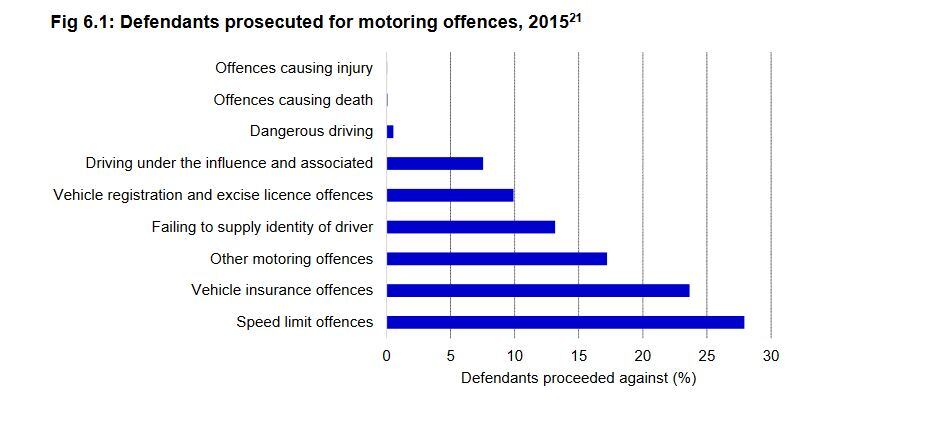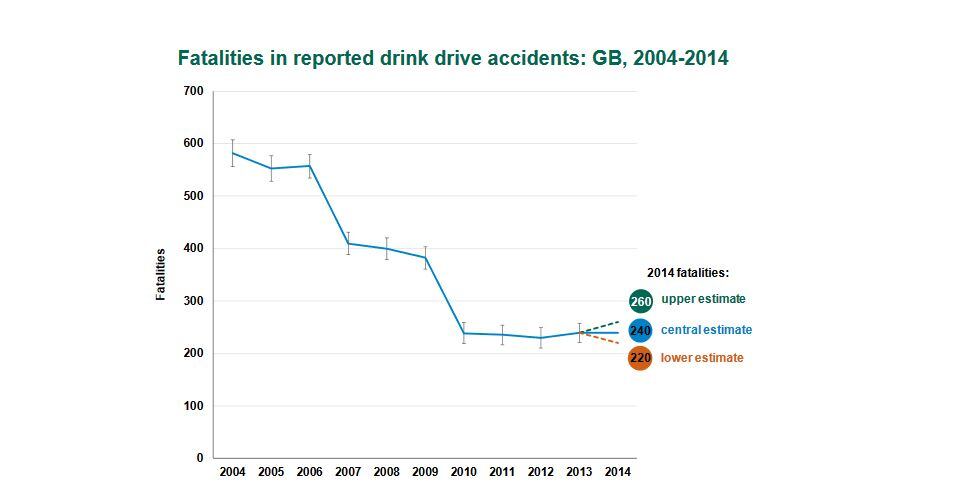A picture of death and danger will soon spread across the UK – from television adverts highlighting the perils of drink driving to the growing presence of breathalyser-ready police officers at the side of roads. It is clear there is a serious and more sinister side to the joviality of December.
Yet, while much of the imagery is a grim reminder of how fun in the pub could turn into something far more sobering, there is a surprisingly bold silver lining that cuts through the melancholy.

The campaigning, warnings and education carried out by the Government, road safety charities like Think and soft drinks companies such as Coca-Cola are, it appears, driving down the frequency of drink driving as well as the devastation it causes.
Drink-drive-related road fatalities have reduced by 85% over the past 30 years through a combination of campaigns and police enforcement, according to the most recent statistics from the Department for Transport. In 1979, deaths caused by drink driving stood at 1,650. In 2014, that dropped to 240 (central estimate, ranging from 260 to 220).
Drink-driving convictions
The improving picture is also backed up by stats for drink-driving convictions, which have dropped by 48% in the past 11 years, from 72,127 in 2005 to 37,578 in 2015, according to figures highlighted by drinkdriving.org.
There were 1,310 drink-drive-associated, serious-injury casualties or deaths in 2014 – 1,010 of those were men and 300 women. Of the 1,310 total, 610 casualties or deaths were caused in or by cars. People prosecuted for motoring offences last year accounted for almost 10% of the total 644,000 motoring offences in 2015. To put it into perspective, more than half of successful motoring prosecutions last year were speed or insurance-related.
The age group most likely to be involved in a drink-driving-related incident was the 25 to 59-year-old group, which accounted for a total of 2,080 deaths or casualties (of all degrees of seriousness) in 2014, compared with 900 involving 16 to 24-year-olds.
According to the Department for Transport’s Reported Road Casualties Great Britain: 2015 Annual Report, around 13% of all deaths in reported road accidents in 2014 involved at least one driver over the drink-drive limit, but the number of seriously injured casualties in drink-drive accidents decreased by 3%.
Worryingly, though, the proportion of adults asked if they believed they had driven while over the drink-drive limit rose from 6.2% in 2014-15 to 7.6% in 2015-16.
Make what you like of the figures, percentages can blow things out of proportion, but the key fact is drink-drive related casualties and deaths are in decline.
That said, there is still work to be done to further slash the unnecessary deaths caused by the crime, which the pub trade has been, and is still, scrupulously working to do on its part.
The on-trade has a responsibility to promote responsible drinking at all times of the year. But in the weeks surrounding Christmas and new year more than 149m trips are made to licensed trade outlets, meaning temptation, and therefore the risks of drink-driving, are higher.

“The on-trade has a huge responsibility to promote designated driver schemes [like Coca-Cola’s] to help ensure customers do not break the law and remain safe,” says Association of Licensed Multiple Retailers chief executive Kate Nicholls.
“We often talk about how the pub represents a safe and supervised environment in which to drink and this includes promoting responsible consumption of alcohol and incorporating a designated driver scheme.”
Consumer drinking habits are part of that change and have already morphed into something new and, in turn, driven change in the hospitality sector through more choice. The diversity has flooded into the non-alcoholic drinks category too, creating more choice for those not drinking alcohol – whether the designated driver or as a result of lifestyle choices.
Nicholls continues: “There is an opportunity here for us to let customers know that pubs and bars can be just as exciting for those who are not drinking alcohol and will be driving friends and colleagues home safely and responsibly.”
That said, there is still a black sheep in the room hampering the hard work carried out by pubs, campaigners and drinks companies to discourage drink-driving, as pointed out by Parliamentary Under Secretary of State at the Department for Transport Andrew Jones MP.
Statistics show the majority of people now wouldn’t drink before driving, but there are still some drivers risking their lives and the lives of others, he says. For Jones, although work over the past three decades is bearing fruit, there is still more to do to ensure the idea of drink driving is a thing of the past.
“We have introduced a range of measures to help this,” he explains. “Last year, we strengthened enforcement by removing the automatic right for drivers who fail a breathalyser test to demand a blood or urine test – denying them the opportunity to sober up while they wait.”
High-risk offenders are subject to medical tests to prove they are not alcohol-dependent before being allowed to drive again. Legislation has recently been passed that will pave the way for evidential breath testing at the roadside, which will save police time.
Soft drinks in pubs
But it needn’t get to the point of failed breathalyser tests at the side of road, adds Jones. “As part of the Department for Transport’s Think partnership, the campaign has, for the ninth consecutive year, teamed up with Coca-Cola to offer designated drivers buy-one-get-one free on soft drinks in pubs this Christmas.
“I encourage all pubs to actively take part and help to promote take-up of this offer, which provides drivers with a real solution to avoid drink driving.”
Pubs are the most important part in the communication of not drinking and driving and should highlight the role of the designated driver, which is one example of how operators can support their customers to make the right choice.
“Everyone has a part to play in tackling drink driving. While it’s ultimately the responsibility of the individual, the support of the pub trade is vital if we are going to tackle this selfish and dangerous behaviour,” Jones adds. “Through promotions and recognition campaigns, you [operators] have the potential to save lives.”
